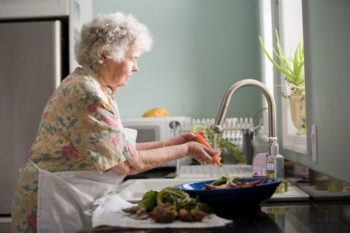Transforming Customers’ Lives: Integrated Pathways to Fair and Sustainable Water (FAIR WATER)
Competition: Breakthrough 1
Amount awarded: £3,784,939
Led by: Northumbrian Water Group
Partners: Northern Gas Networks Ltd, University of Newcastle upon Tyne, Proctor & Gamble Technical Centres Limited, National Energy Action
Project Completion date: June 2026
Water cycle tag: Customer and Communities
See project updates on the FAIR WATER website.
The Fair Water project, led by Northumbrian Water alongside partners including National Energy Action, Northern Gas Networks, Newcastle University and Procter & Gamble, aims to test and develop more effective and sustainable water and energy solutions for people’s homes – including those on low-incomes, the elderly and vulnerable – to find tailored solutions to reducing carbon through energy and water efficiency. For example, this will focus on encouraging behaviour changes and developing new product innovations for task based water use in the home. To achieve this goal, the project was awarded almost £3.8 million.
—
Update from the project (April 2025)
The project has progressed with several elements.
- By December ’24 installation of sensors in fifty-five households was completed. Households were installed with 159 point-of-use water sensors; 54 shower sensors; smart plugs on 44 washing machines and 30 dishwashers. For houses installed in May ’24, we have 10+ months of water use data, and approaching 4 months of data for the latest Dec ’24 installs. Data from the first months in each house provides a baseline, with which the effect of the interventions from January ’25 onwards can be compared.
- Overall household water use data is obtained from smart water meters fitted in 44 houses. This required installation of a completely new low-power radio-based communications system, as the dedicated smart water meter system is not yet installed in the region. This new system was successfully installed by a subcontractor over the period Dec ’24 to Feb ’25.
- Water-use data collection and analysis systems are implemented, with digital processing and visualization tools/dashboards now available in the consortium.
- Interventions, in effect experiments, began in households in January ’25, starting with the clothes washing task, with dish washing in Mar ’25, followed by showering and toilets in summer ’25.


